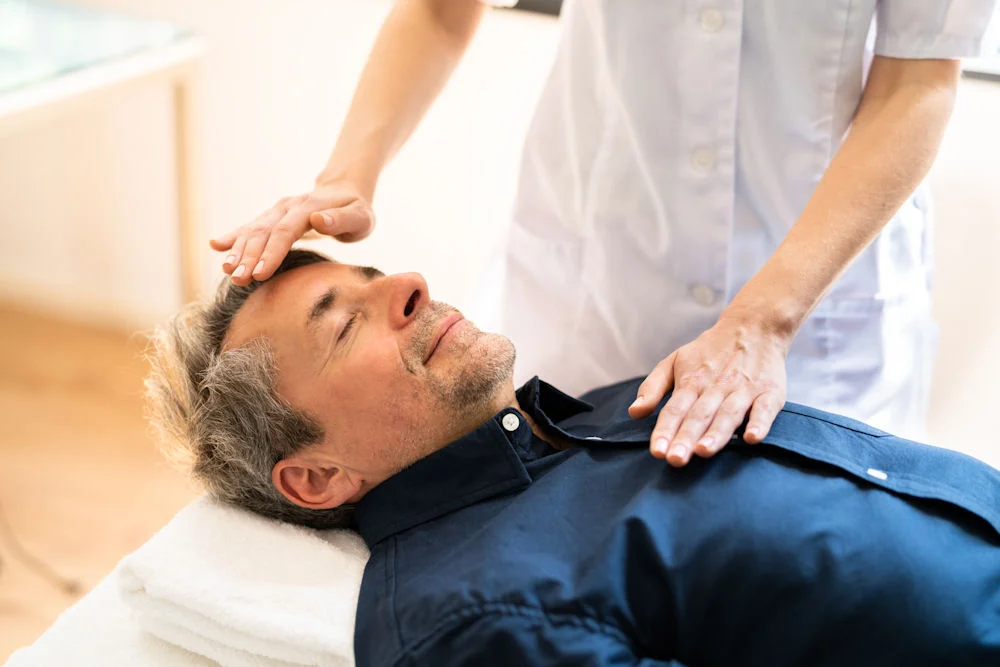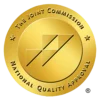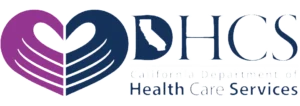 Addiction recovery is a deeply personal journey, one that requires both emotional and physical healing. While traditional methods like therapy and support groups are essential, other approaches can complement this process. Reiki is an energy healing practice that helps restore balance to your mind, body, and spirit, offering a calming and supportive space to deal with the stresses and emotions tied to addiction.
Addiction recovery is a deeply personal journey, one that requires both emotional and physical healing. While traditional methods like therapy and support groups are essential, other approaches can complement this process. Reiki is an energy healing practice that helps restore balance to your mind, body, and spirit, offering a calming and supportive space to deal with the stresses and emotions tied to addiction.
Using Reiki in addiction recovery can help you heal on a deeper level, addressing the emotional and mental wounds that may have fueled harmful habits. It works by clearing energy blockages and promoting relaxation, helping you regain a sense of control over your body and emotions.
Reiki doesn’t replace conventional treatments, but it can be a powerful tool for creating the emotional resilience and inner peace necessary to maintain long-term sobriety. By reconnecting with your true self, Reiki therapy at Bayview Recovery Center in San Diego, California helps create a strong foundation for lasting change and healing.
It may sound like a load of hippie sensationalism, but the results beg to differ. When it comes to addiction, Reiki can offer a unique kind of support. It helps create a calming, peaceful environment, which is key when someone is working through cravings or the emotional turmoil often tied to addiction. Through sessions, Reiki may help reduce anxiety, stress, and trauma that can fuel addictive behaviors, allowing you to reconnect with yourself and your emotions healthily. It encourages deep relaxation, which can aid in shifting the mind away from harmful habits and toward healing.

What Are The Different Types Of Reiki?
- Usui Reiki: This is the traditional method founded by Mikao Usui in Japan. Usui Reiki focuses on channeling universal energy to promote healing and balance across the body, mind, and spirit.
- Karuna Reiki: Karuna means “compassion” in Sanskrit. This style centers on deepening healing through compassion and empathy. It’s often seen as a more advanced form of Reiki, using additional symbols and sounds to help clear deep emotional wounds and trauma.
- Tibetan Reiki: Rooted in Tibetan Buddhist practices, this version incorporates mantras, visualization, and sound healing alongside traditional Reiki techniques. It’s designed to cleanse the energy field and connect with the higher consciousness for spiritual growth.
- Seichim Reiki: Originating in Egypt, Seichim Reiki uses similar principles to Usui Reiki but emphasizes the emotional body and intuitive healing. It’s thought to be particularly effective for addressing emotional pain and trauma.
- Shamballa Reiki: This style is all about connecting with the “highest healing frequency.” It’s often described as a fusion of many healing traditions, blending aspects of Reiki, Tibetan energy work, and other spiritual practices. It’s known for its focus on spiritual enlightenment and healing on a deeper, more expansive level.
- Rainbow Reiki: Rainbow Reiki focuses on the connection between color and healing energy. It uses colors to activate the chakras, helping to clear energy blockages and bring balance to the body. It’s often seen as a vibrant, energetic form of Reiki that appeals to those drawn to color healing.
What Are The Benefits Of Holistic Therapy?
- Balances Your Energy. Holistic therapy helps restore energy flow throughout your body, which can leave you feeling more grounded and in tune with yourself.
- Reduces Stress and Anxiety. With techniques such as mindfulness and meditation, breathing exercises, or acupuncture, holistic therapy helps lower stress and calm your nervous system.
- Promotes Emotional Healing. Addressing the emotional aspects of well-being helps you process past trauma or unresolved feelings, encouraging emotional resilience and mental clarity.
- Improves Physical Health. Many holistic treatments focus on the body’s natural healing abilities through massages, herbal remedies, or dietary changes.
- Empower You to Take Control. Holistic therapy teaches you ways to nurture yourself and make choices that support your physical, emotional, and spiritual health.
- Supports Long-Term Well-Being. Rather than just addressing a specific issue, holistic therapy focuses on long-term well-being, helping you build healthy habits and a lifestyle that keeps you feeling good overall.
- Holistic Healing for the Whole Person. This therapy acknowledges that everything is connected, so healing doesn’t just happen in one area, but across your whole life.
What Does A Reiki Session For Addiction Recovery Look Like?
You’ll likely enter a quiet, peaceful room with soft lighting and calming music. The atmosphere will be focused on making you feel safe and relaxed, setting the stage for your healing journey.
Your Reiki practitioner may start with a brief chat to understand where you’re at emotionally and physically. You might talk about your addiction, cravings, and any other areas of your life you feel need attention, though the session is all about your comfort and what feels right for you.
You’ll be asked to lie down fully clothed, either on a massage table or a comfortable surface. The practitioner may guide you through a few deep breaths to help ground you in the present moment and relax your mind.
The practitioner will gently place their hands on or near different places of your body, focusing on areas where energy might be blocked. These energy points could be on your head, shoulders, chest, or stomach, areas that could hold tension or emotional weight tied to addiction. The practitioner channels healing energy to these spots to help restore balance.
During the session, you may feel a sense of warmth or tingling as energy flows through you. That’s a sign that your body and mind are beginning to let go of old patterns.
When the session ends, the practitioner may slowly bring you back to awareness, helping you transition from a relaxed state. You’ll probably feel more centered, lighter, and calm.
After the session, you might feel deeply relaxed, but it’s common to experience emotional shifts as your body processes the healing. The practitioner might offer advice or tips for integrating peaceful energy into your daily life.
What Are The Benefits Of Reiki?
- Stress Relief. Reiki encourages deep relaxation that lowers stress levels, leaving you feeling calm and more centered.
- Emotional Healing. If you’re dealing with emotional baggage or past trauma, Reiki can help release those blocked feelings, creating space for emotional balance and healing.
- Improved Sleep. Reiki promotes relaxation and can help improve sleep quality, making it easier to get the rest you need.
- Pain Reduction. Whether it’s chronic pain, headaches, or muscle tension, Reiki can help ease physical discomfort by encouraging your body’s natural healing processes.
- Increased Energy Levels. After a Reiki session, the energy flow helps clear blockages that could be draining your vitality, leaving you feeling more alive and focused.
- Better Focus and Mental Clarity. Reiki can clear mental fog, helping you think more clearly, make decisions with confidence, and increase your overall mental sharpness.
- Boosted Immune System. Since Reiki helps reduce stress and encourages relaxation, it also strengthens your immune system.
- Enhanced Self-Awareness. Reiki helps you tune in to your inner self, making it easier to connect with your intuition, recognize your emotions, and align with your true values.
- Spiritual Growth. Many people report feeling more connected to their spirituality after Reiki, with a sense of deeper peace, purpose, and balance.

Alyssa Looser-Smith (Medical Reviewer)
Alyssa is a licensed Clinical Social Worker and received her Master’s degree from San Diego State University. She has experience working with individuals in recovery of all ages for over eight years. Alyssa has also worked with at-risk homeless foster youth transitioning into independent living along with the families in the neonatal intensive care unit at UCSD.
Break The Cycle Of Addiction At Bayview Recovery Center
At Bayview, the focus is on healing the whole person, not just the addiction. Through therapy, counseling, and evidence-based treatments, individuals uncover the roots of their struggles and learn healthier ways to cope. It’s about building resilience, self-awareness, and the tools needed to navigate life without relying on substances. We boast a real commitment to creating a safe, judgment-free space. Our team meets people where they are, offering compassion.
Bayview Recovery Center is a place where hope is reignited, strength is rediscovered, and the future feels full of possibility. Breaking the cycle isn’t easy, but with Bayview, it’s absolutely within reach. Contact us today to begin living your best and healthiest life.



